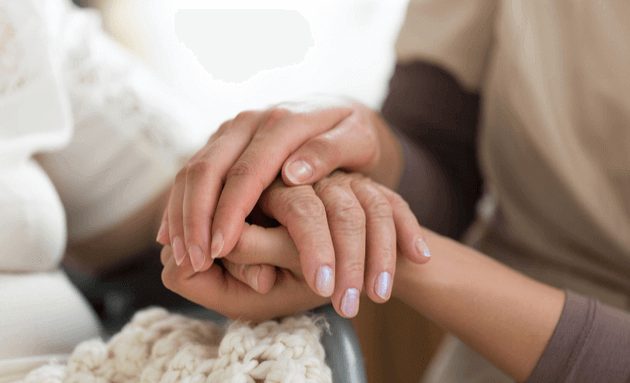5 Facts You Didn't Know About Cancer

Although cancer is a highly debated and researched topic, there are some facts that are yet to be uncovered. Cancer is not just one disease but a group of diseases characterised by uncontrolled growth and spread of abnormal cells. There are over 100 types of cancers, that can affect any part of the human body.
You may know that certain habits such as smoking, excessive consumption of alcohol and processed foods, and lack of physical activity increase the risk of cancer, but the real cause of cancer is often unknown. Cancer can sneak up on an individual with some obvious cues and sometimes without any signs at all. That’s why it is important to undergo regular screenings to keep a check on any abnormal growths in your body.
To get you started, here are a few facts that you probably didn’t know about cancer.
Cancer Is Not Contagious
Cancer is not considered as an infectious or communicable disease. It cannot be transmitted from one person to another through touching, kissing, having sex, sharing meals or breathing the same air. With a few rare exceptions, such as organ transplant and mother-to-fetus transmission, in most cases the immune system will recognise foreign cells (including cancer cells from another person) and destroy them.
However, certain transmittable infections may increase the risk of developing cancer. For example, the Human Papillomavirus causes cervical cancer, Hepatitis B or Hepatitis C can cause liver cancer and Helicobacter pylori bacteria cause stomach cancer. In addition, cancer can run in the family, but instead of being transmitted, the risk is related to genetic traits or common exposures that increase the risk of getting cancer.

2. All Tumours Are Not Cancerous
A tumour is an abnormal lump or growth of cells. When the cells in the tumours are normal and do not metastasize (spread uncontrollably), the tumour is 'benign'. If the cells in the lump are abnormal and can grow uncontrollably, they are cancerous and the tumour is 'malignant'. To determine whether a tumour is benign or malignant, a doctor can take a sample of the cells and send it to a laboratory for biopsy. The sample is then analysed by a pathologist, before giving the prognosis.
Benign tumours usually cause no harm or symptoms. However, some benign tumours can become worrisome if they are pressing on tissues, nerves or blood vessels and cause damage. Examples of problematic benign tumours are fibroids and cysts in the ovaries, brain tumours and polyps. These tumours may have to removed surgically, and do not recur once taken out.
Although tumours are a common sign of cancer, some cancers do not exhibit any tumour like growths, as in the case of blood cancer or leukaemia. In such cancers, there is no formation of solid tumours. The cancer cells move through the bloodstream or lymph nodes, where they spread to other tissues within the body. Cancer can occur anywhere in the body including the breast, intestines, lungs, reproductive organs, blood, and skin.
3. Cancer Leads to Hair Loss
While cancer itself doesn’t typically cause hair loss, the treatment does. Chemotherapy and radiation are used to kill rapidly growing cancer cells in the body, but they also kill healthy cells in the process. Other side effects of Chemotherapy include a high risk of infections, mouth sores and diarrhoea.
Hair follicles are one of the fastest growing cells in the body. The hair follicles of a healthy individual divide every 23 to 72 hours. But if the patient is undergoing chemotherapy, the treatment acts against the hair follicles, causing hair to shed. Some chemotherapy drugs not only affect the hair on the head, but they can also cause loss of eyebrows and eyelashes, pubic hair, and hair on your legs, arms, or underarms.
The extent of hair loss depends on the duration and the type of drugs or treatment used. Due to this reason, many patients opt to shave their head entirely once they start losing chunks of hair. Hair starts to regrow about 1 to 3 months after chemotherapy ends. It often takes about 6 to 12 months for your hair to regrow completely.

2. Alternative Treatments Do Not Cure Cancer
Alternative therapies such as acupuncture, massages, and certain herbal medicines can be useful as complementary methods that help patients cope with the side effects of cancer treatment. Some herbs, when combined with conventional treatment, may help people to live longer, reduce side effects, and reduce the risk of cancer recurrence. However, using them as the only solution has not proven to eliminate cancer. They may also cause side effects. In some cases, they can be risky and should only be used under the guidance of a doctor.
5. Cancer is Not a Death Sentence
Advances in cancer detection and treatment have increased the survival rates for most types of cancer. There are 28 million cancer survivors worldwide, many of whom have survived five years or more after their initial diagnosis. If diagnosed early, cancers of the breast, cervix, colon, rectum, skin, mouth, and skin can be treated and prevented from spreading further.

So, if you think that you pose a risk of developing cancer, go for regular cancer screening tests and adopt a healthy lifestyle to protect yourself. Get in touch with your healthcare provider and know about the screening tests that might be right for you.






